The EthnoPort festival, in Poznań (Poland) was #4 in Transglobal World Music Festival Awards 2024
Daniel Rosenberg shares his main insights
You can also listen to the interview by Daniel with Ms. Bożena Szota, the director of the festival, here.

Basic data:
- Festival name: Ethnoport (in Poznań, Poland)
- Global or thematic focus: global folk music
- Which year is this edition? 17th
- How many festival-goers have attended this edition? 7,000
- Website / Festival lineup: https://ethnoport.pl/podstrony/11505-artysci-2024/
“If we don’t speak about the Bhojpuri language, it can die because of the influence of other languages, like killer languages, like English and French,” Marousia Bouvery, singer from the group Abaim told me after their performance at the Ethnoport Festival in Poznań, Poland. “We’ve been colonized for most of our history,” explained Bouvery, whose group is from the Indian Ocean island of Mauritius.
While I had long known the disastrous consequences of colonisation on Indigenous languages and culture, I had never heard that term, “killer languages,” before – and it is one that is impossible to forget.
Abaim, after their performance at Ethnoport, photo by Daniel Rosenberg:
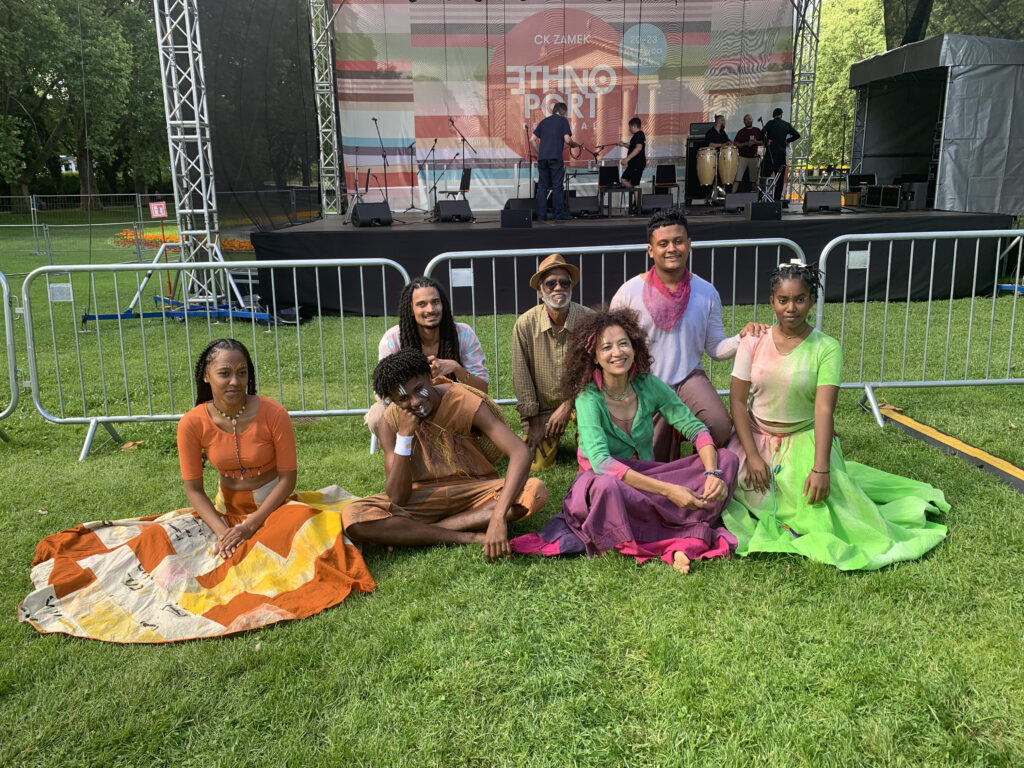
Abaim was one of the 17 groups from around the world that were brought to Poznań, a city of 541,000 in Western Poland for this four-day festival held every year in late June. Rather than opting for a few big headliners mixed with lesser known ensembles, artistic director Bożena Szota opted for a stunning lineup of 17 accomplished artists (though not necessarily “world famous”) that each so brilliant, they could be described as co-headliners.
Ethnoport Director Bożena Szota with Daniel Rosenberg:
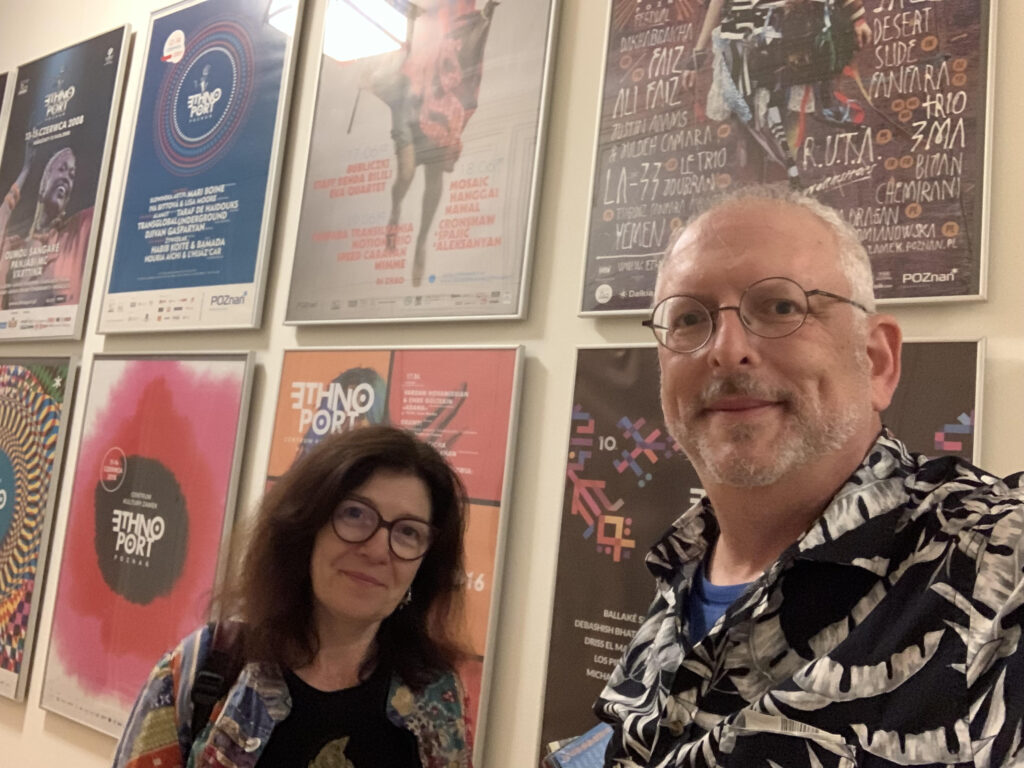
Some of my favourites among this year’s artists were the Afro-psychedelic group from South Africa, Bantu Continua Uhuru Consciousness (BCUC), Tęgie Chłopy – a brass ensemble from the Kielce region of Poland and the aforementioned Abaim from Mauritius.
BCUC performing at Ethnoport, photo by Daniel Rosenberg:
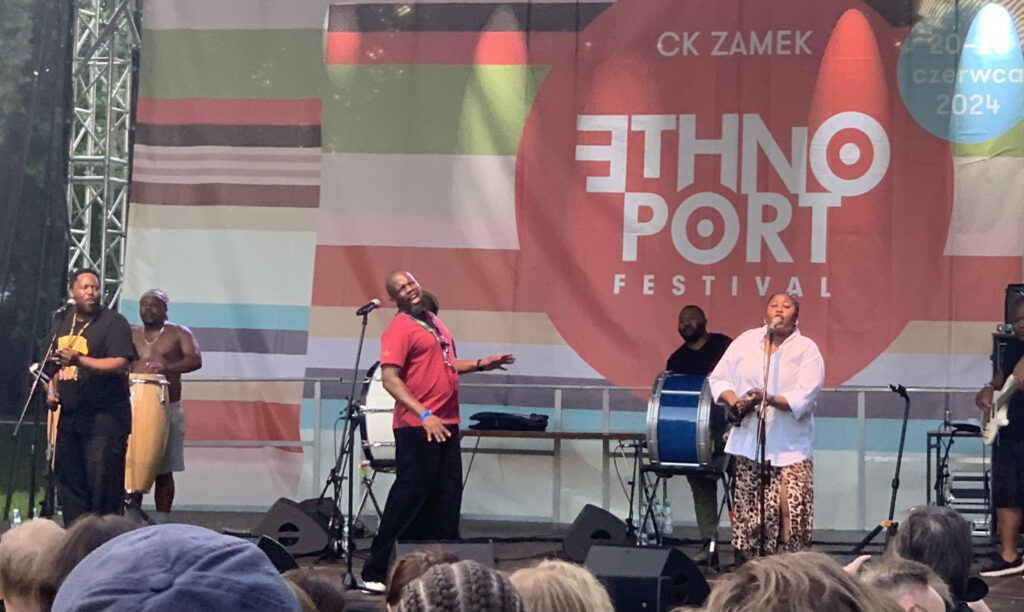
Tęgie Chłopy at Ethnoport, photo by Daniel Rosenberg:
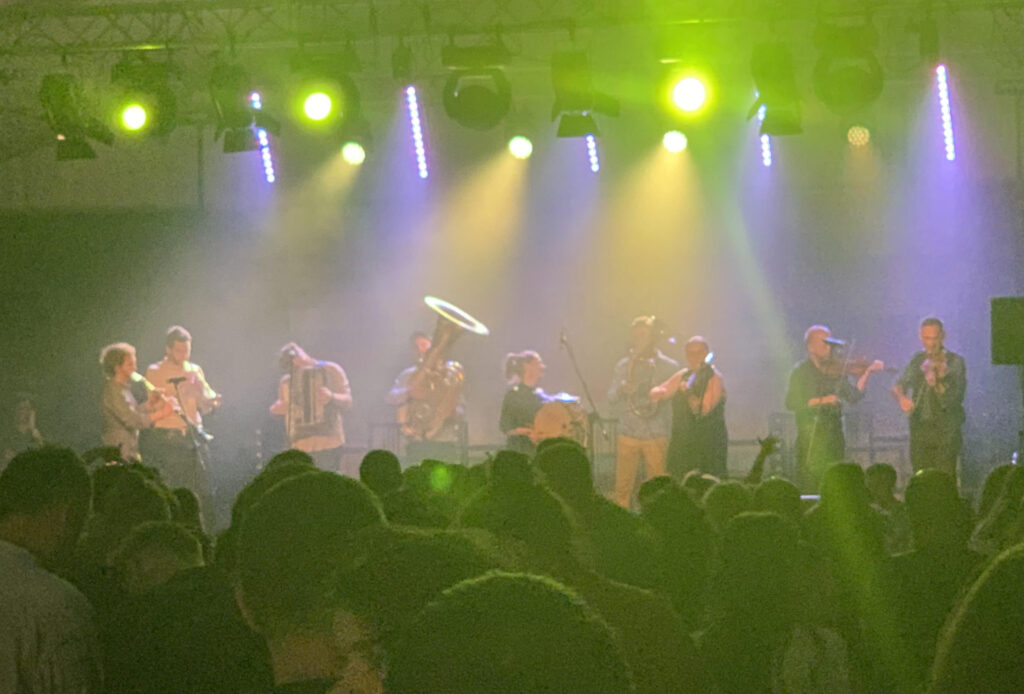
Poznań city centre, photos by Daniel Rosenberg:
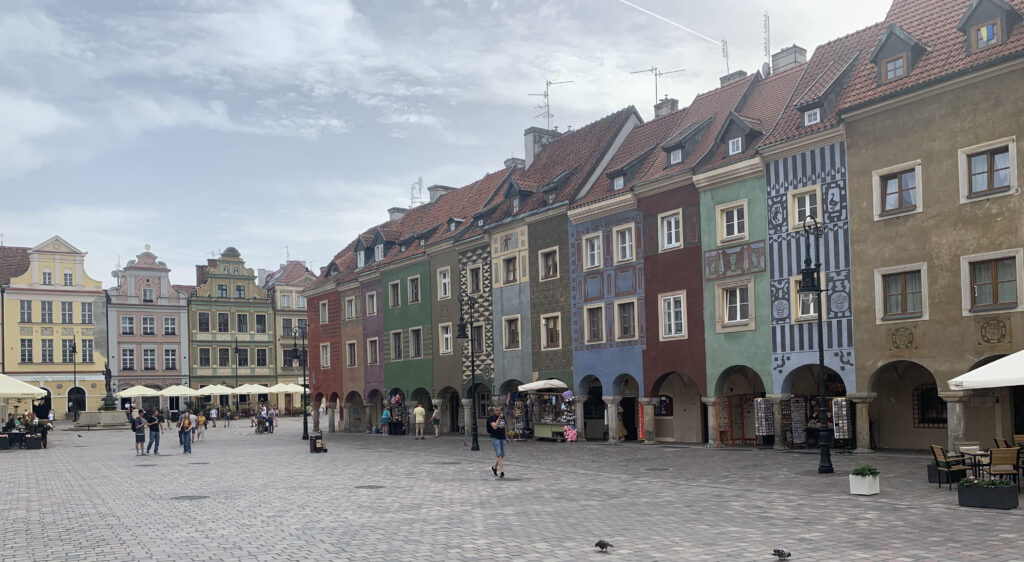
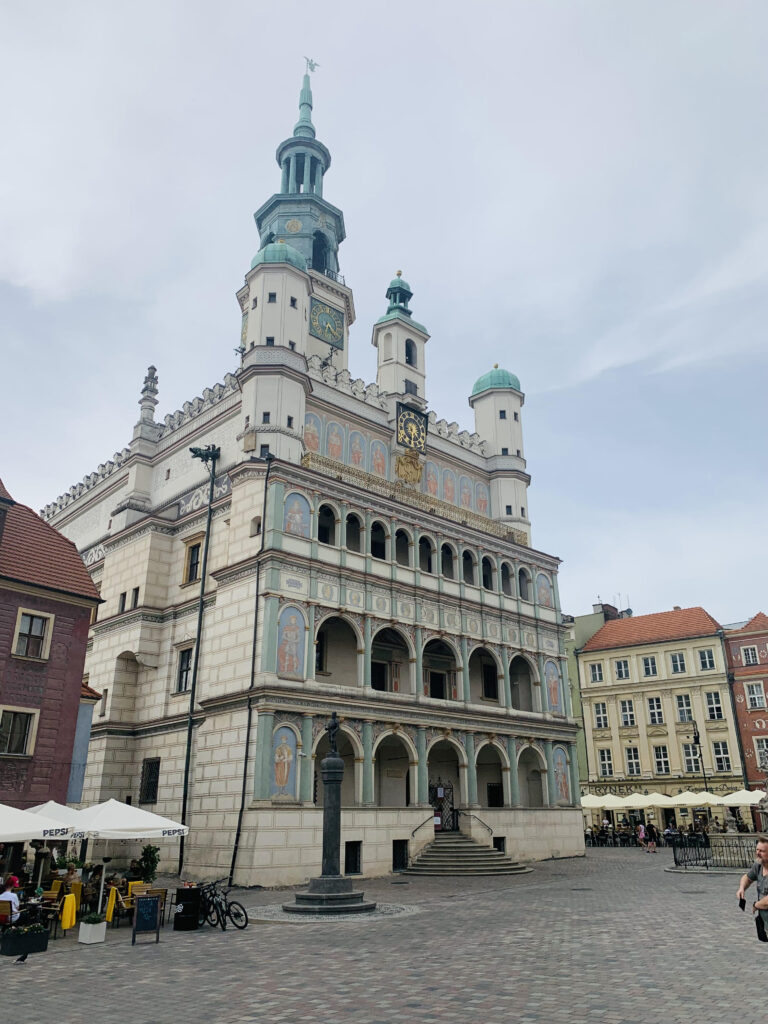
While no festival without a massive budget (and a dozen stages) can begin to capture the true diversity of global music going on today in 200 countries across thousands of genres in six continents, Ethnoport succeeds brilliantly. They show that you don’t need a massive budget that features “superstars” of global music. Ethnoport’s aims are to introduce new artists to long time festival goers by attracting some of the best bands from far away places such as Abaim (from Mauritius), Samulnori Hanmac (from South Korea) and Trio Mandili (from Georgia).
With all the stages located within a few blocks, none were more than a 5 minute walk, the logistics were magnificent. The three main stages were located in a castle that’s been converted into a cultural centre, the castle’s courtyard, along with a free concerts at Adam Mickiewicz Park, just a few minutes walk from the castle.
Social responsibility is a key factor in Ethnoport’s programming. Whether it’s featuring ensembles from places under attack, where cultures and populations are devastated by war (including Ukrainian and Palestinian artists) or one of this year’s headliners, Abaim, whose music deals with how climate change is affecting the island of Mauritius, and their efforts to preserve endangered languages – Ethnoport has done a magnificent job on programming, both musically and in terms of social responsibility.
